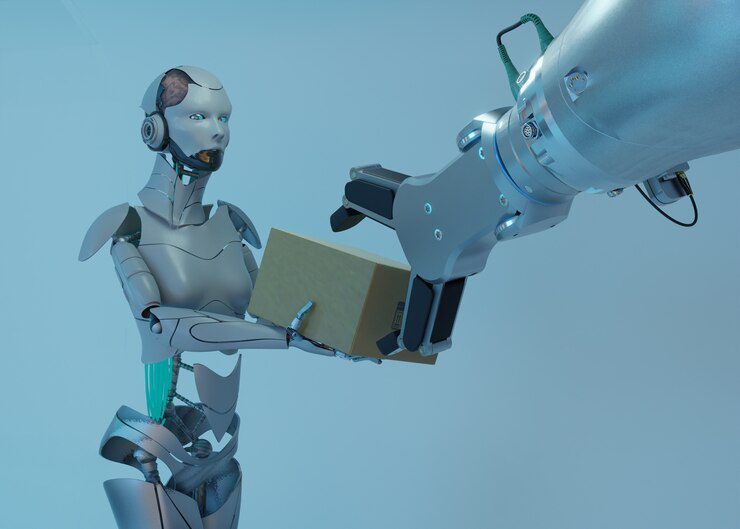From sci-fi flicks to futuristic factory floors, robots have captured our imaginations for decades. But the age of Jetsons is no longer just a fantasy – the increasing use of robots is a reality across various industries, and it’s having a major impact on our world. But with great robo-power comes great responsibility, and the ethical considerations surrounding this technological revolution can’t be ignored.
Robots on the Rampage: Where Are They Taking Over?
Get ready for a robotic revolution, because these machines are making their mark in surprising places. Here’s a glimpse into the rise of the robots:
Manufacturing Mania: Factories are no longer scenes from Charlie Chaplin movies. Robots are assembling cars with laser-like precision, welding parts with superhuman strength, and performing tedious tasks with tireless efficiency.
Healthcare Heroes: Robots are stepping up their game in the medical field too. They’re assisting surgeons with delicate procedures, providing companionship to patients, and even performing complex diagnostics.
Logistics Champs: Say goodbye to the manual labor of the warehouse. Robots are whizzing around fulfillment centers, picking and packing orders at lightning speed, and keeping those online shopping sprees humming along.
The Rise of the Machines: Perks and Possibilities
The increasing use of robots isn’t all doom and gloom. There are some definite perks to having these mechanical marvels on our team:
Productivity Powerhouse: Robots don’t get tired, don’t take breaks, and can work around the clock. This translates to increased productivity, which can benefit businesses and consumers alike.
Enhanced Safety: Robots can tackle dangerous tasks that could put human workers at risk. Think bomb disposal squads or hazardous material clean-up – robots are the ultimate safety crew.
Quality Control Champions: Robots are sticklers for precision. They can perform repetitive tasks with unfailing accuracy, ensuring consistent quality control in manufacturing and other industries.
The Flip Side of the Coin: Ethical Concerns of the Robot Revolution
While robots offer exciting possibilities, the increasing use of robots also raises some ethical concerns that need to be addressed:
Jobocalypse or Opportunity? One of the biggest fears surrounding robots is job displacement. As robots become more sophisticated, will they render human workers obsolete? The answer is complex – some jobs will be lost, but new ones will likely be created in areas like robot design, maintenance, and programming.
Robots are only as good as the algorithms they’re programmed with. Bias in robot algorithms can lead to discriminatory hiring practices or unfair treatment. Ensuring fairness and transparency in robot programming is crucial.
Who’s in Control? The idea of super-intelligent robots taking over the world might be science fiction, but it’s a concern worth considering. Developing ethical frameworks for robot development and ensuring human control is paramount.
The Future of Work: Robots as Collaborators, Not Competitors
The increasing use of robots doesn’t have to be a zero-sum game. Instead of fearing robot overlords, we can focus on fostering a future where humans and robots collaborate.
Here’s how to ensure a harmonious robot-human co-existence:
Upskilling the Workforce: Equipping workers with the skills needed to work alongside robots is essential. This involves training in areas like robotics, automation, and data analysis.
Robots for Good: Imagine robots tackling environmental clean-up, assisting in disaster relief efforts, or providing care for the elderly. The possibilities for using robots for positive social impact are vast.
The Human Touch Matters: Robots might be efficient, but they lack the creativity, empathy, and problem-solving skills that humans possess. The future of work will likely favor jobs that leverage these uniquely human strengths.
Conclusion
The increasing use of robots is transforming our world, and the ethical considerations that come with it can’t be ignored. By fostering human-robot collaboration, investing in workforce development, and prioritizing ethical robot design, we can ensure that the rise of the robots paves the way for a brighter future, not a dystopian nightmare. The future of work may be robotic, but it can also be bright, innovative, and full of possibilities for both humans and machines.







